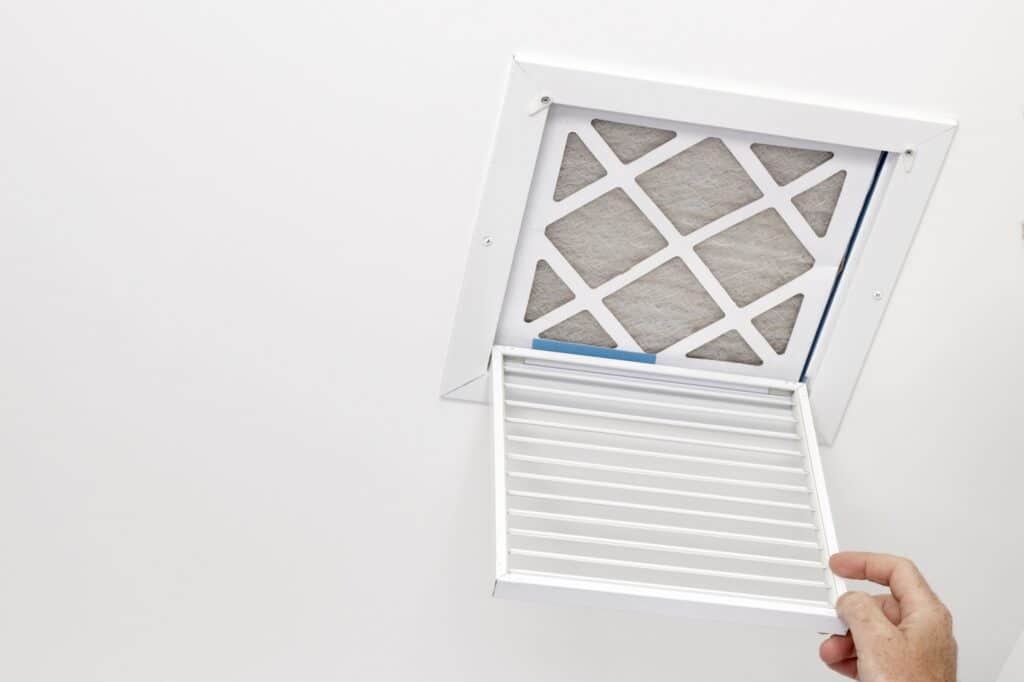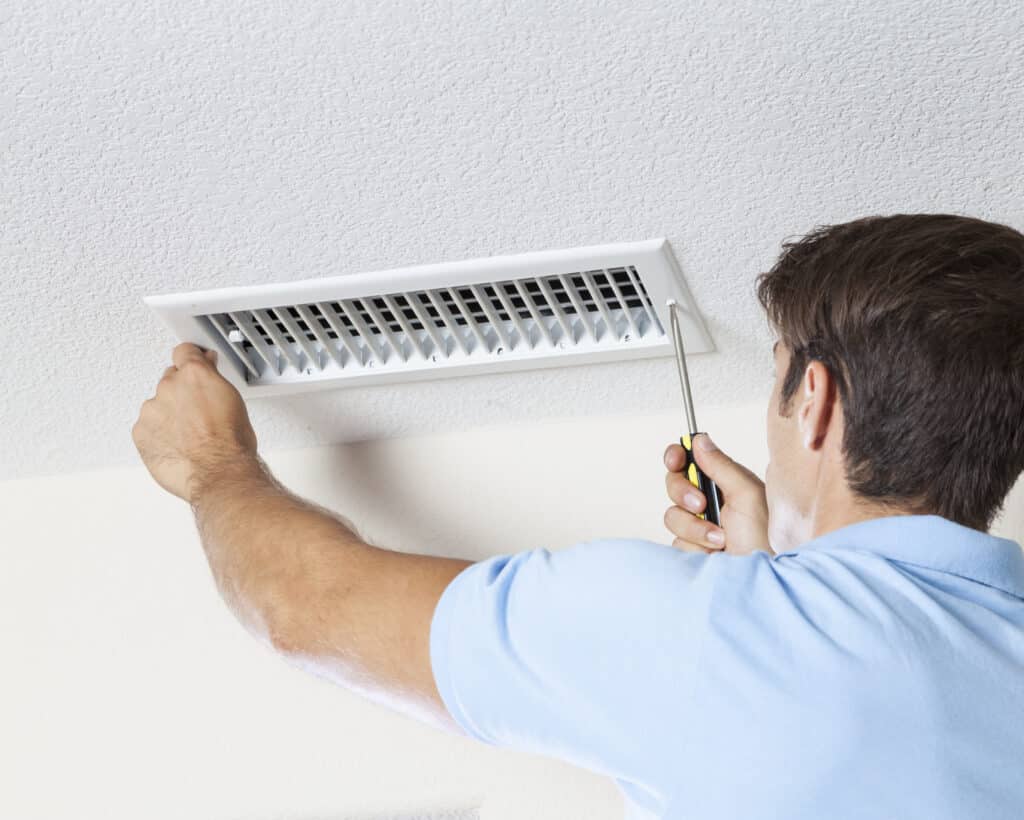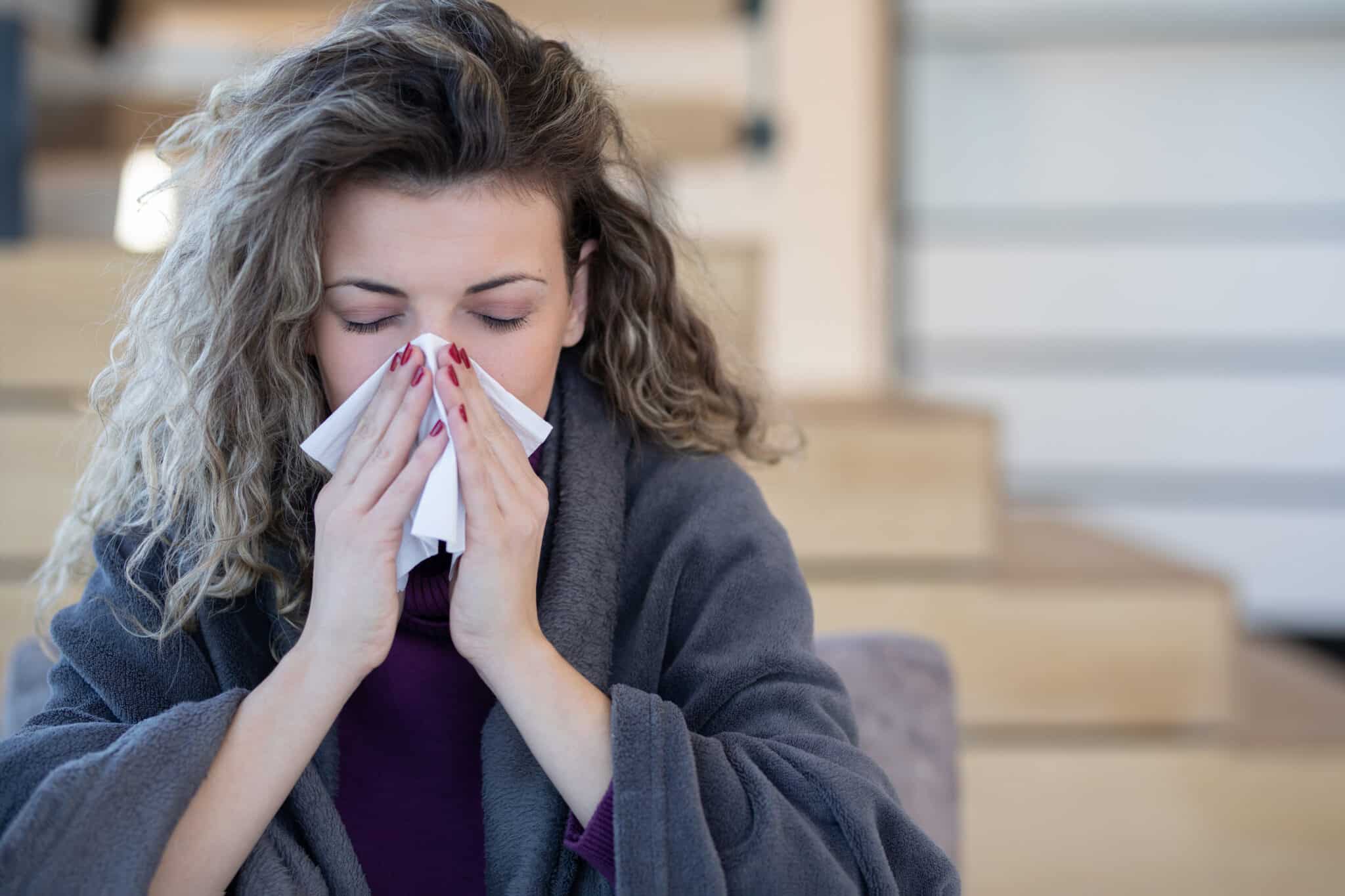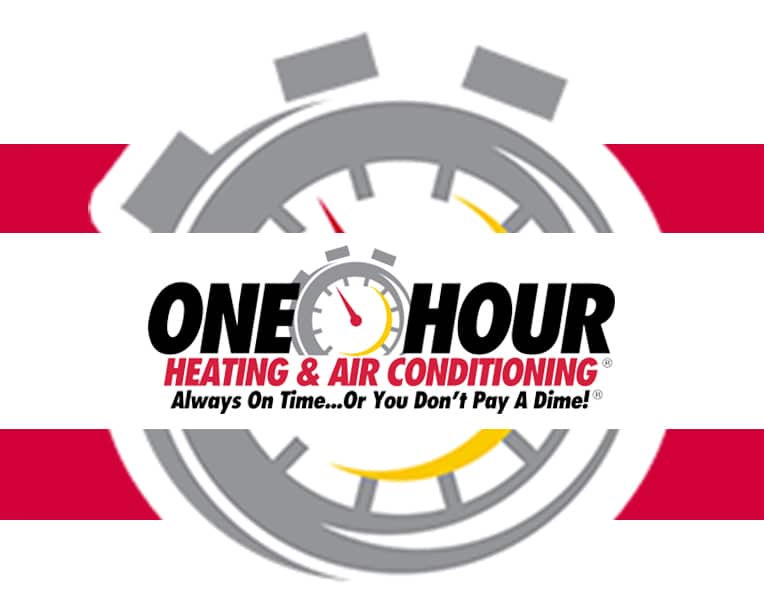Managing allergies can be a daunting task, especially during allergy season. The constant sneezing, itchy eyes, and other symptoms can make daily life uncomfortable. However, one often overlooked solution is right within our homes and workplaces: HVAC systems. These systems play a crucial role in allergy management, providing much-needed relief to allergy sufferers. In this comprehensive guide, we’ll explore how HVAC systems help in allergy management.
Understanding Allergies and Their Triggers
What Are Allergies?
Allergies occur when the immune system reacts to a foreign substance—such as pollen, pet dander, or dust mites—that doesn’t cause a reaction in most people. These substances are known as allergens. For some, allergies can trigger severe symptoms like asthma attacks, while others might experience milder reactions such as a runny nose or itchy skin.
Common Allergens
- Pollen: This is a fine powder produced by trees, flowers, grasses, and weeds to fertilize other plants of the same species. Inhaling pollen can cause sneezing, congestion, and itchy eyes.
- Dust Mites: These tiny creatures thrive in warm, humid environments and are found in bedding, carpets, and upholstered furniture. They can trigger asthma and other allergic reactions.
- Pet Dander: Proteins found in a pet’s skin cells, urine, and saliva can cause allergic reactions. Pet hair itself is not an allergen, but it can collect dander and other allergens like dust and pollen.
- Mold: Mold spores can float through the air and, when inhaled, can cause allergic reactions. Mold thrives in damp, humid environments.
- Tobacco Smoke: Secondhand smoke contains numerous chemicals that can cause allergic reactions and exacerbate respiratory conditions.
- Volatile Organic Compounds (VOCs): These compounds are emitted as gases from certain solids or liquids, including household products like paints, varnishes, and cleaning supplies. VOCs can cause allergic reactions and other health issues.
These allergens can enter your home through various means, including open windows, and doors, and on clothing or pets.
Allergy Symptoms
Common allergy symptoms include:
- Sneezing
- Runny or stuffy nose
- Watery, itchy eyes
- Itchy skin or rash
- Coughing and wheezing
- Shortness of breath
Indoor air quality (IAQ) is crucial for maintaining a healthy living environment. Poor IAQ can exacerbate allergy symptoms and lead to other health issues. HVAC systems play a vital role in regulating and improving IAQ by filtering out allergens and maintaining optimal humidity levels.

How HVAC Systems Can Help in Allergy Management
Air Filtration
One of the primary functions of an HVAC system is air filtration. High-efficiency particulate air (HEPA) filters are particularly effective in trapping airborne particles, including allergens. These filters can capture up to 99.97% of particles as small as 0.3 microns, significantly reducing the presence of allergens in your home.
Types of Filters
- Fiberglass Filters: Basic filters that capture larger particles.
- Pleated Filters: Offer better filtration and capture smaller particles.
- HEPA Filters: Best for capturing tiny allergens and providing the highest level of air filtration.
Humidity Control
Humidity levels can greatly influence the presence of allergens like mold and dust mites. HVAC systems help maintain optimal humidity levels (30-50%), preventing the growth of mold and reducing dust mite populations.
Dehumidifiers and Humidifiers
- Dehumidifiers: Remove excess moisture from the air, ideal for humid climates.
- Humidifiers: Add moisture to the air, beneficial in dry environments.
Ventilation
Proper ventilation is essential for reducing indoor allergen levels. HVAC systems improve ventilation by circulating fresh air and expelling stale air, thus diluting the concentration of indoor allergens.
Types of Ventilation
- Natural Ventilation: Utilizes windows and doors to allow fresh air in.
- Mechanical Ventilation: Uses fans and ducts to circulate air throughout the home.
Regular Maintenance
Regular maintenance of HVAC systems is crucial for ensuring they operate efficiently. This includes cleaning or replacing filters, checking for leaks, and ensuring the system is free of mold and other contaminants. Regular maintenance helps prevent the buildup of allergens within the system itself.
Advanced HVAC Features
Modern HVAC systems come with advanced features that further enhance their ability to manage allergens. These include:
- UV Germicidal Lights: Kill bacteria, viruses, and mold spores.
- Air Purifiers: Additional devices that work alongside HVAC systems to further clean the air.
- Programmable Thermostats: Allow precise control of temperature and humidity levels.

How to Optimize Your HVAC System for Allergy Management
Choose the Right Air Filter
Not all air filters are created equal. For effective allergy management, invest in high-quality filters with a minimum efficiency reporting value (MERV) rating of 8 or higher. HEPA filters are the gold standard for capturing small particles, but ensure your HVAC system is compatible with them, as they can restrict airflow in some systems.
Maintain Optimal Humidity Levels
As mentioned earlier, maintaining the right humidity levels is crucial for reducing allergens. Use a hygrometer to monitor indoor humidity and adjust your HVAC system’s humidifier or dehumidifier settings accordingly. In areas like Spring Valley, CA, where humidity levels can fluctuate, this step is particularly important.
Regularly Clean and Maintain Your System
Schedule regular HVAC maintenance with a professional technician. This includes cleaning coils, inspecting ducts, and changing filters. Regular maintenance not only improves system efficiency but also reduces the presence of allergens.
Use a Whole-House Air Purifier
Consider installing a whole-house air purifier to work in conjunction with your HVAC system. These purifiers use advanced filtration technologies, such as UV light and electrostatic precipitation, to capture and neutralize allergens, providing an extra layer of protection.
Keep Ducts Clean
Dust and debris can accumulate in your HVAC system’s ducts over time, reducing indoor air quality and increasing allergen levels. Professional duct cleaning can remove these contaminants and improve airflow, enhancing your system’s efficiency.
Seal Leaks and Improve Insulation
Air leaks in your home can allow outdoor allergens to enter and indoor air to escape, reducing your HVAC system’s effectiveness. Sealing leaks around windows, doors, and ductwork, and improving insulation can help maintain a clean and allergen-free indoor environment.
Additional Strategies for Allergy Management in Your Home
Implementing a Cleaning Routine: Beyond optimizing your HVAC system, maintaining a regular cleaning routine in your home is crucial for managing allergies. Dust and vacuum frequently to remove allergens from surfaces and carpets. Use a vacuum cleaner with a HEPA filter to ensure that dust and allergens are effectively captured and not released back into the air.
Managing Pet Allergens: If you have pets, their dander can be a significant source of indoor allergens. Regularly bathe and groom your pets to reduce dander. Additionally, consider keeping pets out of certain areas of your home, such as bedrooms, to minimize allergen exposure in spaces where you spend a lot of time.
Using Allergy-Proof Bedding: Allergen-proof covers for mattresses and pillows can significantly reduce exposure to dust mites, a common indoor allergen. Wash bedding frequently in hot water to kill dust mites and remove allergens.
Controlling Indoor Plants: While indoor plants can improve air quality by absorbing carbon dioxide and releasing oxygen, they can also be a source of mold and pollen. Choose plants that are less likely to produce allergens and ensure proper care to prevent mold growth.
Reducing Clutter: Cluttered spaces can trap dust and allergens, making cleaning more difficult. Keep your home organized and minimize clutter to reduce dust buildup and improve air quality.
Seasonal Tips for Allergy Management
Spring and Summer
During spring and summer, pollen levels are typically higher, which can exacerbate allergy symptoms. To manage allergies during these seasons:
- Keep windows and doors closed to prevent pollen from entering your home.
- Use your HVAC system to circulate and filter indoor air.
- Change air filters more frequently to handle increased pollen levels.
- Schedule HVAC maintenance before the start of the season to ensure your system is in top condition.
Fall and Winter
Fall and winter bring different allergen challenges, such as dust mites and mold from decaying leaves. To manage allergies during these seasons:
- Use a humidifier to maintain optimal humidity levels and prevent dry air.
- Ensure your HVAC system is clean and well-maintained to handle increased use.
- Clean and vacuum regularly to reduce dust and mold buildup.
- Consider using allergen-proof covers on mattresses and pillows to reduce dust mite exposure.
The Benefits of a Well-Maintained HVAC System
Improved Indoor Air Quality
By effectively filtering and ventilating indoor air, HVAC systems can significantly improve indoor air quality, reducing the concentration of allergens. This leads to fewer allergy symptoms and a healthier living environment.
Consistent Comfort
HVAC systems provide consistent temperature and humidity control, creating a comfortable indoor environment that minimizes allergy triggers. Properly maintained systems ensure that you can enjoy a comfortable home year-round without worrying about allergens.
Energy Efficiency
Modern HVAC systems are designed to be energy-efficient, reducing your energy bills while maintaining optimal indoor air quality. Regular maintenance and upgrades, such as programmable thermostats, can further enhance energy efficiency and reduce operational costs.
Extended System Lifespan
Regular maintenance of your HVAC system not only improves its performance but also extends its lifespan. By keeping components clean and addressing issues promptly, you can avoid costly repairs and replacements, ensuring your HVAC system remains reliable for many years. This longevity is especially important for ongoing allergy management, providing continuous protection against allergens.
Enhanced Health and Well-being
A well-maintained HVAC system contributes to the overall health and well-being of your household. By reducing allergens and maintaining a clean, comfortable indoor environment, HVAC systems help prevent respiratory issues and other health problems associated with poor air quality. This proactive approach to allergy management ensures that everyone in your home can breathe easier and live healthier.
The Importance of Professional HVAC Services
While homeowners can take several steps to optimize their HVAC systems for allergy management, professional services are essential for ensuring the system operates at peak performance. Certified HVAC technicians can:
Conduct Thorough Inspections and Maintenance: Regular inspections and maintenance by professionals help identify and resolve potential issues before they become major problems, ensuring your HVAC system runs efficiently and effectively.
Recommend and Install Appropriate Air Filters: Technicians can advise on the best air filters for your specific needs, such as HEPA filters, and ensure they are correctly installed to maximize their effectiveness in capturing allergens.
Clean and Seal Ducts to Prevent Allergen Buildup: Over time, dust, mold, and other allergens can accumulate in your ducts. Professionals can thoroughly clean and seal ducts, preventing the recirculation of these contaminants and improving overall air quality.
Install and Maintain Whole-House Air Purifiers: Whole-house air purifiers provide an additional layer of protection against allergens. HVAC technicians can install and maintain these systems, ensuring they operate at optimal efficiency to keep your indoor air clean and healthy.
Professional HVAC services are crucial for maintaining a healthy, allergen-free environment in your home.
How HVAC Technology is Evolving for Better Allergy Management
Smart Thermostats
Smart thermostats are revolutionizing the way we control HVAC systems and manage allergies. These devices allow you to efficiently regulate your HVAC system, maintaining optimal temperature and humidity levels even when you’re not at home.
Some smart thermostats also come with air quality monitoring features, alerting you when indoor air quality drops and adjustments are needed. By keeping a close eye on these factors, smart thermostats play a crucial role in allergy management by ensuring your HVAC system operates at peak efficiency.
Advanced Air Purification Systems
Newer HVAC systems are equipped with advanced air purification technologies, such as UV-C light and ionization, which can neutralize bacteria, viruses, and allergens.
These systems work alongside traditional filters to provide a higher level of air purification, enhancing the overall effectiveness of allergy management. With these advanced technologies, HVAC systems can significantly reduce the presence of airborne allergens, ensuring a healthier living environment.
Zoning Systems
Zoning systems are an innovative feature in modern HVAC systems that allow you to control the temperature and airflow in different areas of your home independently.
This capability is particularly beneficial for allergy management, as it enables you to maintain different humidity levels and air quality in various zones. By reducing allergen presence in specific areas, zoning systems help tailor the indoor environment to meet the needs of allergy sufferers more effectively.
Energy Recovery Ventilators (ERVs)
Energy Recovery Ventilators (ERVs) are an essential component of modern HVAC systems that help improve indoor air quality by exchanging stale indoor air with fresh outdoor air while retaining the energy used to heat or cool the indoor air.
This process helps maintain a consistent indoor environment and reduces the introduction of outdoor allergens. ERVs are a valuable addition to HVAC systems, offering a sustainable solution for maintaining clean and allergen-free indoor air, which is crucial for effective allergy management.
Breathe Easy with One Hour Heating & Air Conditioning of San Diego
Are you ready to improve your indoor air quality and manage your allergies more effectively? Contact One Hour Heating & Air Conditioning of San Diego today!
Our team of HVAC experts is dedicated to providing top-notch service and ensuring that your home remains a comfortable, allergen-free haven.
Whether you need a new HVAC system installation, routine maintenance, or professional advice on air quality management, we are here to help.
Breathe easy and live healthier with our comprehensive HVAC solutions.
Don’t wait—schedule your appointment now and take the first step towards a healthier home environment!
FAQs
- How does an HVAC system help in allergy management? An HVAC system plays a crucial role in allergy management by filtering out allergens such as pollen, dust mites, and pet dander from the indoor air. They also help maintain optimal humidity levels and ensure proper ventilation, which reduces the concentration of airborne allergens.
- Can upgrading my HVAC system improve my allergy symptoms? Yes, upgrading your HVAC system can improve your allergy symptoms. Modern HVAC systems come with advanced filtration and air purification technologies that can capture and neutralize allergens more effectively than older systems.
- How often should I change the air filters in my HVAC system for effective allergy management? For effective allergy management, it is recommended to change the air filters in your HVAC system every 1-3 months, depending on the type of filter and the level of allergens in your environment. High-efficiency filters, such as HEPA filters, may need more frequent replacement to maintain their effectiveness in capturing airborne particles and ensuring optimal indoor air quality.
- What role do smart thermostats play in allergy management with HVAC systems? Smart thermostats enhance allergy management by allowing you to control your HVAC system more efficiently. They help maintain optimal temperature and humidity levels, which are crucial for reducing allergen presence. Some smart thermostats also offer air quality monitoring features, alerting you when indoor air quality drops and adjustments are needed, ensuring your HVAC system operates effectively to manage allergens.
- How do Energy Recovery Ventilators (ERVs) in HVAC systems help with allergy management? Energy Recovery Ventilators (ERVs) in HVAC systems help with allergy management by exchanging stale indoor air with fresh outdoor air while retaining the energy used to heat or cool the indoor air. This process maintains a consistent indoor environment and reduces the introduction of outdoor allergens. ERVs enhance the overall efficiency of HVAC systems in maintaining clean and allergen-free indoor air, which is essential for managing allergies effectively.



















